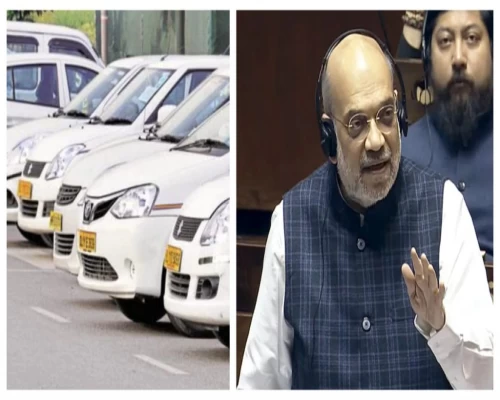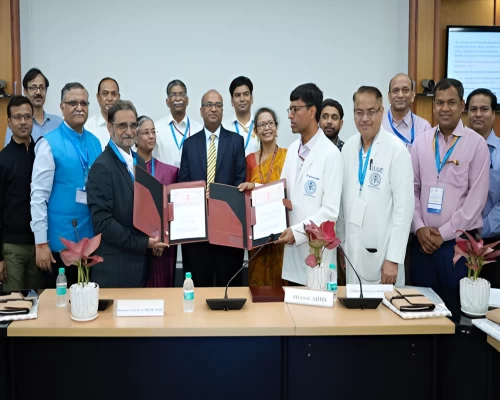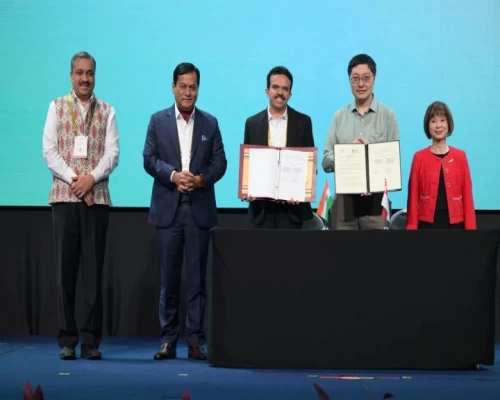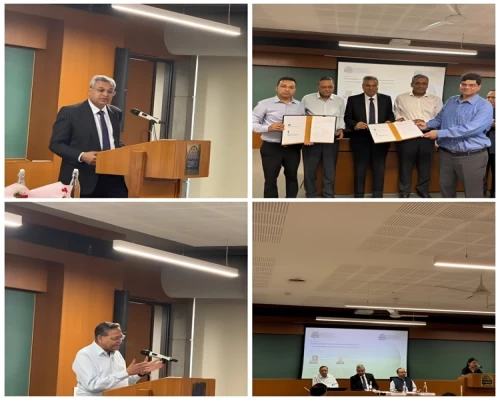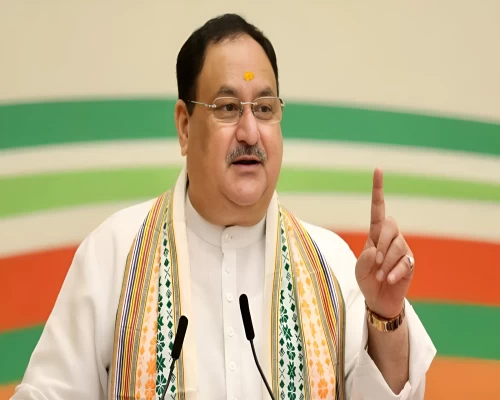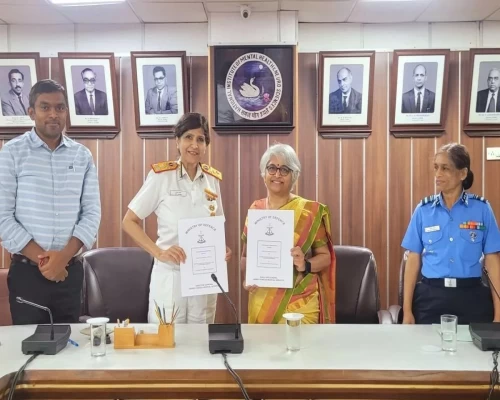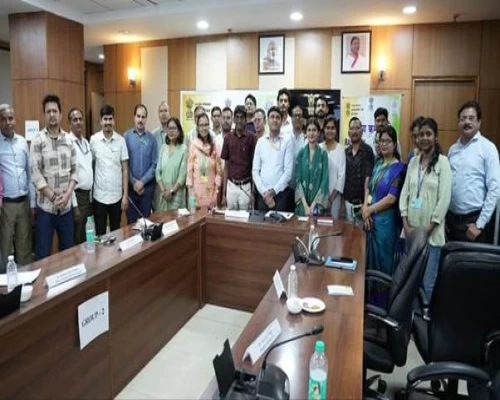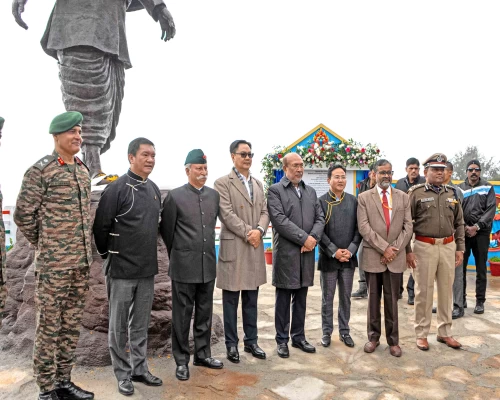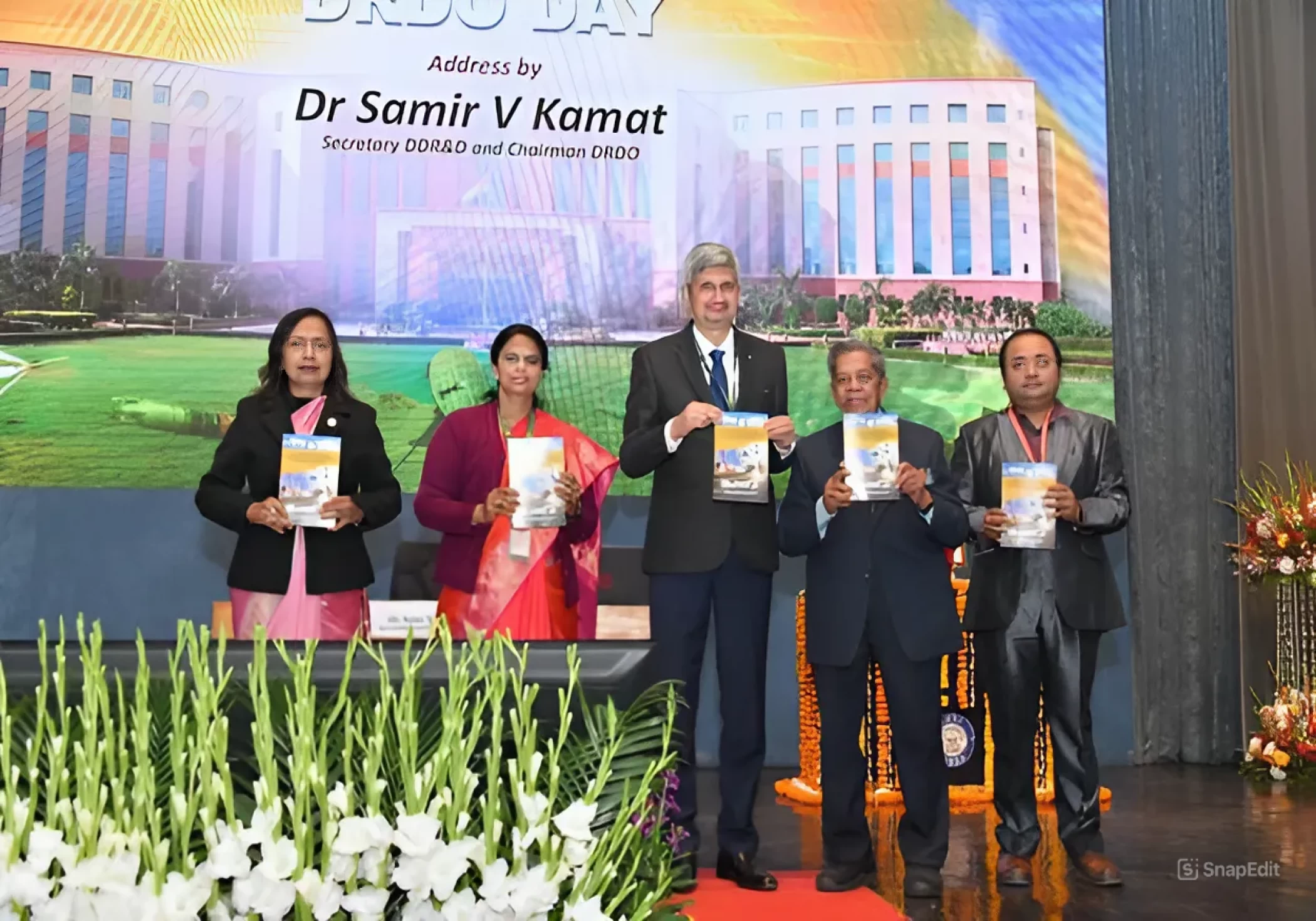
New Delhi: Floral tributes were paid to former President and Missile Man of India, APJ Abdul Kalam, at his bust in DRDO Headquarters, New Delhi, on 3 January 2025. This ceremony marked the 67th Foundation Day of the Defence Research and Development Organisation (DRDO), celebrated annually on 1 January. Secretary, Department of Defence R&D and Chairman of DRDO, Samir V Kamat, along with Director Generals and senior officials, attended the event.
Several significant DRDO documents were released during the event. These included a standard operating procedure on product development, a compilation of various SOPs and guidelines related to DRDO personnel, the DRDO transport policy, a dictionary of scientific and technical terminology, the magazines InSight and Quest, and the January issue of the DRDO Newsletter.
Two monographs were also launched. The first, Conceptual Guide to Torpedo System Design and Development, was authored by RVS Subrahmanyam and Y Sreenivas Rao. The second, Himalayas to Hyderabad: A Journey from Border Roads to Missiles, Microdrones and Cyborgs, was authored by Lt Gen VJ Sundaram and Scharada Dubey.
To enhance synergy with industry, the Industry Interaction Group (IIG) initiative was launched on the DRDO website. This initiative provides a structured framework for industries to present suggestions, concerns, queries, and grievances through one-on-one interactions and open houses with relevant laboratories.
In his address, the DRDO Chairman highlighted 2024 as a successful year for the organisation. He announced that DRDO had been honoured with prestigious awards in five categories—innovation, technology, building and construction, and self-reliance—at the 32nd Global Symposium and 6th World Project Management Forum. Award-winning projects included the DHARASHAKTI Integrated Electronic Warfare System, the Advanced Lightweight Torpedo, the Advanced Towed Artillery Gun System, Mission 45 Day, and the Quick Reaction Surface to Air Missile.
Several systems were handed over, and Acceptance of Necessity was accorded for projects valued at ₹1.10 lakh crore in 2024. These included the Air Defence Tactical Control Radar, Medium Range Anti-ship Missile, Long Range Land Attack Cruise Missile System, and Software Defined Radio – Tactical, among others. Development trials and user evaluations of various systems have also progressed significantly.
The Chairman expressed satisfaction with Cabinet Committee on Security (CCS) approvals for flagship programmes such as the Full Scale Engineering Development of the Advanced Medium Combat Aircraft and the establishment of a missile test range in Nagayalanka, Andhra Pradesh. Infrastructure developments in 2024 included the Defence Technology and Test Centre in Lucknow, a submersible platform for acoustic characterisation in Idukki, a virtual reality-based naval chaff application centre in Jodhpur, and a land-based submarine battery test facility in Visakhapatnam.
Kamat emphasised the importance of industry and academia engagement in 2024. A total of 1,950 transfers of technology were handed over to Indian industries, with 256 licensing agreements signed during the year. DRDO test facilities conducted over 18,000 tests for private industries and defence public sector undertakings in the past three years, with 5,000 tests completed in 2024. Additionally, 80 ongoing projects were supported, with nine awarded to MSMEs and start-ups last year.
The Chairman noted advancements in AI, such as the development of an AI tool, Divya Drishti, which integrates face recognition with physiological parameters. DRDO also filed over 226 patents and received more than 201 in 2024.
Fifteen DRDO Industry Academia Centres of Excellence continue to facilitate research across 65 verticals. In 2024, 73 projects worth ₹275 crore were sanctioned, involving 266 researchers and 10 new academic institutes.
The Chairman concluded by expressing optimism for 2025, with plans to introduce new policies for start-ups, higher-risk deep-tech projects, and further industry-academia collaborations. Structural reforms within DRDO are expected to progress significantly in the coming year.
BI Bureau






